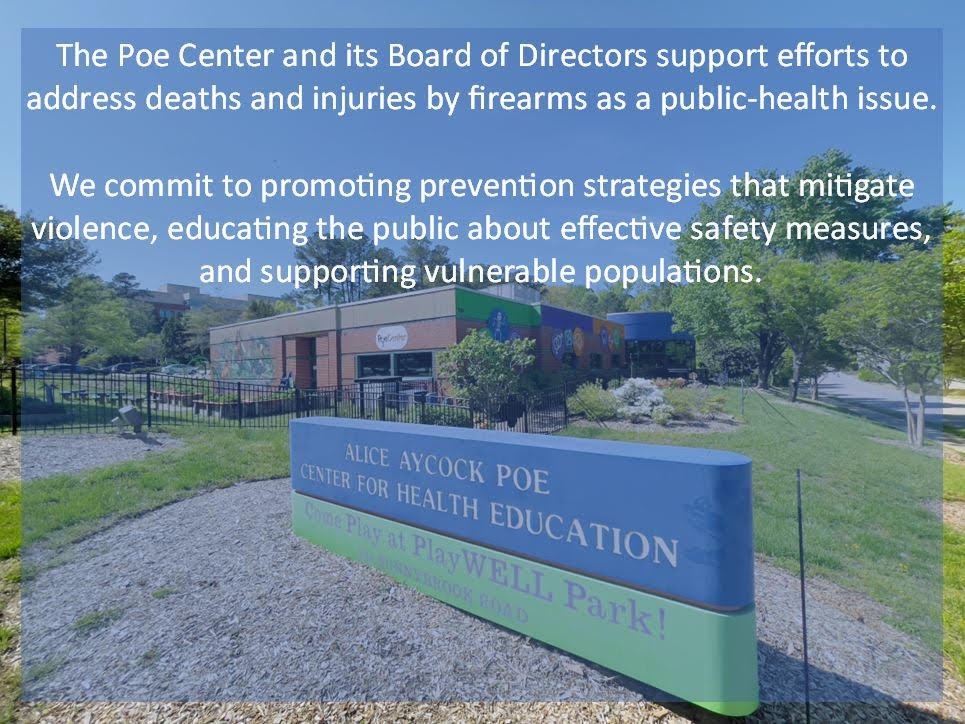
Statement on Preventable Deaths & Injuries by Firearms
As a health-education organization, the Poe Center is committed to addressing public health issues that impact the lives of North Carolina children and families. We are concerned about the persistently growing number of preventable deaths and injuries by firearms. Firearms are presently the leading cause of child injury and death. Our deepest sympathies are continuously with victims, their loved ones, and the communities that have been traumatized as a result.
The Poe Center and its Board of Directors support efforts to address deaths by firearms as a public health issue. Therefore, we commit to promoting prevention strategies that mitigate violence, educating the public about effective safety measures, and supporting vulnerable populations.
According to the North Carolina Department of Health & Human Services:
- Five North Carolinians per day die from a firearm-related death, more than 1,700 in 2020.
- More than half of firearm-related deaths are suicides and more than 4 in 10 are homicides.
- 116 North Carolina children died of a firearm related injury in 2021.
- Among youth, more than 50% of suicides and 80% of homicides in 2021 involved a firearm.
- Black North Carolinians are almost twice as likely as white North Carolinians to be killed with a gun.
- People with a mental illness are three times more likely to be the victim of violence with a firearm.
The Poe Center is committed to:
- Promoting safe storage of guns, including providing gun locks at events and sharing information on social media.
- Raising awareness about the connection between firearm access and suicide and unintentional death and injury.
- Dispelling misconceptions that mental illness is the primary contributing factor to violence with firearms.
- Partnering with organizations to provide relevant health education that supports violence disruption.
- Continue to promote Poe’s preventative health education, such as our MindWELL mental wellness and Substance Use Prevention programs, that teach young people to use resiliency skills and protective factors reducing risk of violence.
- Respecting people’s beliefs, while building on common goals to create safer communities.
Resources:
- National Suicide Prevention Lifeline: 988
- Crisis Text Line: Text “MHA” to 741741
- HopeLine: 919-231-4525
- Be SMART for Kids – Secure Gun Storage Save’s Kids’ Lives
- Coping with Mass Violence and School Shooting Resources
